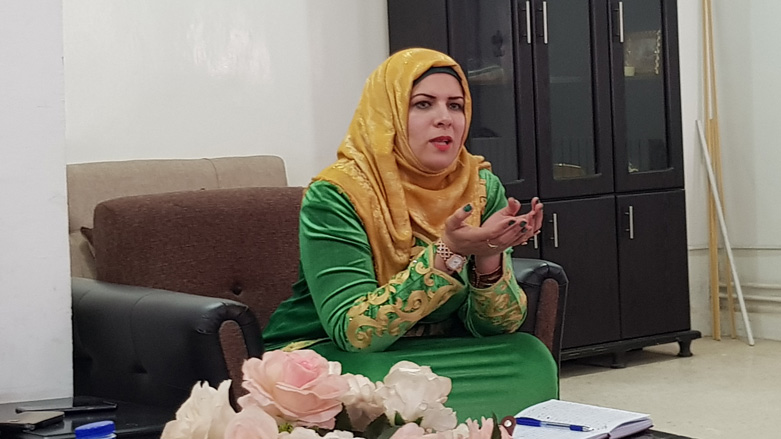Local tribal customs prevent polygamy ban in northeast Syria

ERBIL (Kurdistan 24) – As International Woman's Day was observed on Friday, the autonomous administration in northeastern Syria faced renewed resistance to their continued attempts to abolish the practice of polygamy.
Abdullah Ayran, an advisor to Raqqa’s Executive Council says he is personally against the traditional practice, but hasn’t implemented a ban on it that has been declared, “because probably an uprising would occur,” as a result.
The Democratic Autonomous Administration (DAA) for northeast Syria, an alliance of seven regions that include Kurdish, Arab, Turkmen and Syriac Christian populations under the control of the Syrian Democratic Forces (SDF), signed a social contract that calls for gender equality.
They have, however, been unable to enforce it in many areas.
“We are allowed to marry four in a tribal and Islamic society,” said Tabqa Council co-head Sheikh Hamed al Faraj. “Nobody has stood against it.”
But Roshan Hami, the other co-head of the council, said this is a misinterpretation of the Quran and being abused by the men. “It says you can marry four when you can be fair to them. They only read half of the Quran,” she remarked.
During the rule of Assad, the rebels, and ISIS, Hami stated, there was a clear and obvious lack of women’s rights which allowed polygamy to thrive. “There is a big difference if you compare the Assad and ISIS times, and now.”
“We have a co-presidency, and in addition to the protection of women’s rights, females were able to prove themselves in the military, administration, and politics.”
“It was not an easy task, the official continued. “During the era of ISIS, everything a woman did was banned: her voice, her face, and her looks.”
For this reason, local women’s councils have been set up in many areas to educate the local populations and therefore lay the groundwork for them eventually accepting the polygamy ban.
Ayran, the advisor to the Raqqa council, said, “We are trying to raise awareness that polygamy is a crime against the family, not just against the women.”
“In Raqqa, Deir al-Zor, and Manbij, they did not implement the law against polygamy, but in Qamishli, Serekaniye, and Kobani, they have.”
“In the Kurdish areas, it was easier," he continued. “We have the law here, but it’s not implemented. It depends on whether the community is ready.”
Earlier, the local administration tried to enact a similar ban in the border town of Tal Abyad, but this led to social unrest.
“Some women attacked our offices, and said they married men by their own will, why do you put them in prison?”
One woman who said she allowed her husband to marry again since she couldn't bear children protested the decision. Ayran said that she told him she was indeed the one who made the marriage possible. “After that, we decided to stop implementing the law in Tal Abyad.”
Layla Hassan, the co-head of the Deir al-Zor Civil Council, told Kurdistan 24 that the practice there is also not yet banned, due to the tribal nature of the society.
According to Rosa Burç, a researcher at the Center on Social Movement Studies (COSMOS) at Scuola Normale Superiore University in Florence, the councils are trying to implement a grassroots democracy and educate the local conservative society without imposing ideas.
“Every top-down imposed model of democracy is doomed to fail and no idea can flourish if it’s not supported, built, and put into practice by the society itself. This is why there is a stronger focus on grassroots education and bottom-up empowerment, rather than enforcing exogenous ideas to a society.”
Gayle Tzemach Lemmon, an adjunct senior fellow at the Council on Foreign Relations, agrees. “As an alternative [to completely banning polygamy], bringing together women’s councils made of local women deciding on local issues enables them to lead their own change and decide their own future.”
“The idea behind this is that it enables more durable and lasting change, change that is locally owned and shaped. And that answers the discussion of whether this is truly owned by Arab communities,” she said.
“I have met so many forceful women from Arab communities taking part in their councils and reshaping their own lives after ISIS.”
Editing by John J. Catherine
